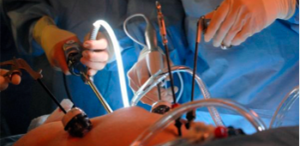
For patients who are willing to commit to a healthy diet and smaller meals, weight loss surgery can be an effective. Studies cited by the American Society for Metabolic and Bariatric Surgery have found that more than 90 percent of patients with severe obesity can maintain significant weight loss after bariatric surgery.
Dr. Liza María Pompa González performs several types of bariatric surgery at our Tijuana, MX clinic. Patients want to know if these treatments will reduce hunger after bariatric surgery. Here, Dr. Pompa explains.
How Does Bariatric Surgery Affect Hunger?
Understanding how bariatric surgery affects hunger requires an understanding of how two hormones (leptin and ghrelin) regulate hunger and feelings of satiation.
Ghrelin, commonly referred to as the hunger hormone, is responsible for the onset of hunger pangs. Since the hormone is produced in the stomach, any surgery that removes a portion of the stomach also reduces the amount of ghrelin produced, thereby lowering occurrences of hunger.
Conversely, leptin is responsible for the feeling of fullness after eating. It is thought that many obese people have developed a resistance to the effects of leptin. In studies, bariatric procedures have been shown to increase the amount of leptin in the body.
By increasing the amount of leptin and lowering the production of ghrelin, bariatric surgery tilts the hormonal balance in favor of feeling full and away from hunger. In fact, most patients report a loss of hunger following bariatric procedures.
Which Procedure Reduces Ghrelin?
The gastric sleeve procedure has been found to be most effective in reducing ghrelin the amount of ghrelin that is produced. This is because the majority of the gastric fundus is removed. The gastric fundus is where the majority of ghrelin is produced.
Which Bariatric Surgeries Performed at Our Clinic
At LIMARP International Center of Excellence for Obesity, Dr. Pompa offers restrictive and malabsorptive bariatric procedures. Restrictive procedures lower the amount of food that can be taken in at one time while malabsorptive procedures limit food intake and nutrient and calorie absorption.
Restrictive Procedures
Restrictive procedures may be recommended for patients with a BMI of 30 to 39.5. These reduce the volume of food patients can intake but does not disrupt the normal digestive process.
Restrictive procedures performed by Dr. Pompa include:
- Gastric bands
- Gastric plication (creates large folds in the stomach)
- Gastric sleeve
- Intragastric balloon (places a small balloon in the stomach)
Malabsorptive Procedures
Unlike restrictive procedures, malabsorptive procedures restrict food intake and the number of calories and nutrients a patient can consume.
The malabsorptive surgeries performed at our clinic include:
- Gastric bypass
- Mini gastric bypass
- Duodenal switch (removes large portions of the stomach and gastrointestinal tract)
There are a number of reasons you may not qualify for bariatric surgery. In those cases, Dr. Pompa may recommend non-surgical weight loss. This program connects patients with nutritional specialists to address obesity-related issues.
Cut Down on Hunger (and Weight) With Bariatric Surgery
The benefits of bariatric surgery procedures such as gastric sleeve include the remission of type 2 diabetes, joint pain relief, improved fertility, and improved cardiovascular health, among other positive health outcomes.
Based on your needs and goals, Dr. Pompa will recommend one of the bariatric surgery techniques at our renowned center. To learn more about how bariatric surgery can reduce hunger, contact our office online or call (619) 373-0229.


